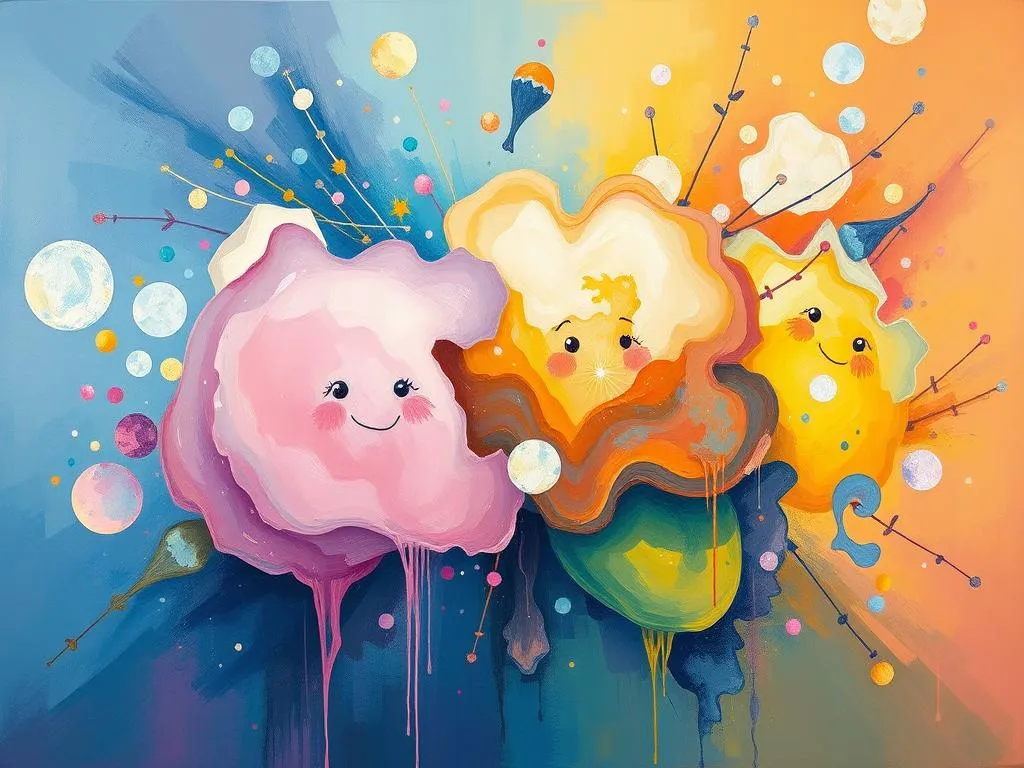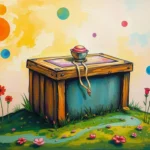
Have you ever woken up from a dream and thought, “What on earth was that about?” Dreams are mysterious, often weaving intricate narratives that can leave us feeling confused, inspired, or even unsettled. They serve as windows into our subconscious, reflecting our thoughts, fears, desires, and experiences. Understanding the symbolism behind these dreams can be like holding a mirror to our innermost selves, revealing insights we may not consciously recognize.
In this article, we’ll embark on a journey through the rich tapestry of dream symbolism, exploring various themes and scenarios. Along the way, we will blend cultural perspectives, psychological insights, and practical advice to help you interpret your dreams and uncover their meanings. So, buckle up as we dive deep into the world of dreams, where every symbol has a story to tell.
Dreamscapes: Symbols of the Subconscious
In the realm of dreams, symbols are the language of the subconscious. Each symbol can represent a multitude of meanings, influenced by personal experiences, cultural backgrounds, and even universal archetypes. To begin unraveling this intricate tapestry, let’s explore some key symbols that frequently appear in dreams.
-
Water: Often associated with emotions and intuition, water can signify the depths of your subconscious. Calm waters might represent tranquility, while turbulent waters could indicate emotional turmoil or unresolved issues.
-
Flying: This exhilarating symbol often conveys a sense of freedom and liberation. Flying can reflect your desire to escape from limitations, showcasing your ambitions and aspirations soaring above the challenges you face.
-
Teeth Falling Out: A common and unsettling dream, the loss of teeth often symbolizes insecurities or fears regarding appearance and aging. This dream can indicate feelings of vulnerability or concerns about communication.
-
Being Chased: This powerful symbol often points to anxiety or avoidance. If you find yourself fleeing from something in your dreams, it may reflect aspects of your life you are trying to escape or confront.
-
Houses: The house in your dreams can represent your self and personal life. Different rooms may signify various aspects of your personality, while the condition of the house can reflect your current mental state.
Understanding these symbols can help you decode your dreams and gain a clearer perspective on your waking life. But dreams do not exist in a vacuum; they are influenced by our experiences and emotions.
The Canvas of Experience: Scenarios in Dreaming
To further illustrate how dream symbolism plays out in real life, let’s consider some common dream scenarios. Each scenario comes with its own set of meanings and implications, offering valuable insight into your waking experiences.
1. The Exam Panic
Imagine you’re back in school, sitting in an exam room, and you realize you forgot to study. You feel a wave of panic wash over you. This dream often reflects feelings of inadequacy and the fear of failure. It may indicate that you are facing pressure in your waking life, perhaps related to work or personal goals. Consider what areas of your life require more preparation or confidence.
2. The Lost Wallet
In this dream, you discover your wallet is missing. You search frantically, feeling vulnerable and exposed. Losing a wallet can symbolize feelings of loss of control or identity. It may suggest you are grappling with financial concerns or feeling insecure about your self-worth. Take note of what aspects of your life feel unstable right now.
3. The Wedding Day Disaster
You dream of your wedding day, but everything goes wrong—your dress is torn, and the venue is double-booked. This scenario often points to commitment fears and anxiety about relationships. It may reflect doubts about a significant decision or fear of the future. Reflect on your current relationships and any commitments that may be causing you stress.
4. The Falling Dream
You find yourself plummeting from a great height, only to wake up just before hitting the ground. Falling dreams typically signify feelings of loss of control or insecurity. They may be a manifestation of anxiety in your waking life. Consider what situations are making you feel overwhelmed or powerless.
5. Meeting a Celebrity
You find yourself in a dream where you meet your favorite celebrity. This encounter can symbolize your aspirations and desires for recognition. It may reflect your yearning for success or admiration in your waking life. Think about what qualities you admire in that celebrity and how they relate to your own goals.
Each of these scenarios serves as a reminder that our dreams often echo our daily experiences, emotions, and concerns. By examining these dream experiences, we can gain clarity and direction in our waking lives.
Awakening Potential: Dreams as Pathways to Growth
Dreams are not just whimsical narratives; they are powerful tools for personal growth and self-discovery. By interpreting your dreams and understanding their symbolism, you can uncover valuable lessons about your life and psyche. Here are some practical insights to harness the power of your dreams for personal development.
1. Keep a Dream Journal
Start recording your dreams as soon as you wake up. Write down every detail you can remember, including emotions, symbols, and themes. Over time, patterns may emerge that can provide context for your waking life. This practice can enhance self-awareness and help you track your emotional journey.
2. Reflect and Connect
After documenting your dreams, take time to reflect on their meanings. Consider how the symbols relate to your current life circumstances, emotions, and challenges. Ask yourself questions like: What is my subconscious trying to tell me? What unresolved issues might be surfacing?
3. Engage with Your Emotions
Dreams often evoke strong emotions. Take time to sit with these feelings and explore what they reveal about your waking life. This emotional engagement can lead to deeper insights and healing. Don’t shy away from uncomfortable emotions; they are often where the most growth occurs.
4. Use Lucid Dreaming Techniques
If you’re interested in gaining more control over your dreams, consider practicing lucid dreaming. This technique allows you to become aware that you are dreaming and can help you confront fears or explore desires in a safe environment. Lucid dreaming can empower you to rewrite your dream narratives and gain insights into your waking life.
5. Seek Support
If certain dreams are particularly distressing or recurring, consider discussing them with a therapist or a trusted friend. Sometimes, sharing your dreams can provide new perspectives and insights that you may not have considered. Support from others can be invaluable in processing complex emotions and experiences.
As you embrace your dreams and their meanings, remember that they are not just fleeting images but gateways to understanding yourself on a deeper level. The journey of dream interpretation is a personal one, filled with revelations that can illuminate your path forward.
In reflecting upon the intricate dance between our dreams and waking lives, it becomes clear that each dream is a unique story waiting to be told. By unraveling the symbolism and meaning behind our dreams, we empower ourselves to confront our fears, embrace our desires, and ultimately foster our growth. So the next time you find yourself lost in a dream, take a moment to pause, reflect, and listen to the whispers of your subconscious. You might just uncover the wisdom you didn’t know you were searching for.







